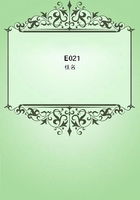
第133章
This has been several times repeated: it was excellent when it was done the first time, but, of course, loses all value when it is copied. Every project in the history of reform, no matter how violent and surprising, is good, when it is the dictate of a man's genius and constitution, but very dull and suspicious when adopted from another. It is right and beautiful in any man to say, `I will take this coat, or this book, or this measure of corn of yours,' -- in whom we see the act to be original, and to flow from the whole spirit and faith of him; for then that taking will have a giving as free and divine: but we are very easily disposed to resist the same generosity of speech, when we miss originality and truth to character in it. There was in all the practical activities of New England, for the last quarter of a century, a gradual withdrawal of tender consciences from the social organizations. There is observable throughout, the contest between mechanical and spiritual methods, but with a steady tendency of the thoughtful and virtuous to a deeper belief and reliance on spiritual facts. In politics, for example, it is easy to see the progress of dissent. The country is full of rebellion; the country is full of kings. Hands off! let there be no control and no interference in the administration of the affairs of this kingdom of me. Hence the growth of the doctrine and of the party of Free Trade, and the willingness to try that experiment, in the face of what appear incontestable facts. I confess, the motto of the Globe newspaper is so attractive to me, that I can seldom find much appetite to read what is below it in its columns, "The world is governed too much." So the country is frequently affording solitary examples of resistance to the government, solitary nullifiers, who throw themselves on their reserved rights; nay, who have reserved all their rights; who reply to the assessor, and to the clerk of court, that they do not know the State; and embarrass the courts of law, by non-juring, and the commander-in-chief of the militia, by non-resistance. The same disposition to scrutiny and dissent appeared in civil, festive, neighborly, and domestic society. A restless, prying, conscientious criticism broke out in unexpected quarters. Who gave me the money with which I bought my coat? Why should professional labor and that of the counting-house be paid so disproportionately to the labor of the porter, and woodsawyer? This whole business of Trade gives me to pause and think, as it constitutes false relations between men; inasmuch as I am prone to count myself relieved of any responsibility to behave well and nobly to that person whom I pay with money, whereas if I had not that commodity, I should be put on my good behavior in all companies, and man would be a benefactor to man, as being himself his only certificate that he had a right to those aids and services which each asked of the other. Am I not too protected a person? is there not a wide disparity between the lot of me and the lot of thee, my poor brother, my poor sister? Am I not defrauded of my best culture in the loss of those gymnastics which manual labor and the emergencies of poverty constitute? I find nothing healthful or exalting in the smooth conventions of society; I do not like the close air of saloons. I begin to suspect myself to be a prisoner, though treated with all this courtesy and luxury. I pay a destructive tax in my conformity. The same insatiable criticism may be traced in the efforts for the reform of Education. The popular education has been taxed with a want of truth and nature. It was complained that an education to things was not given. We are students of words: we are shut up in schools, and colleges, and recitation-rooms, for ten or fifteen years, and come out at last with a bag of wind, a memory of words, and do not know a thing. We cannot use our hands, or our legs, or our eyes, or our arms. We do not know an edible root in the woods, we cannot tell our course by the stars, nor the hour of the day by the sun. It is well if we can swim and skate. We are afraid of a horse, of a cow, of a dog, of a snake, of a spider. The Roman rule was, to teach a boy nothing that he could not learn standing.